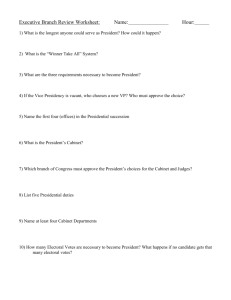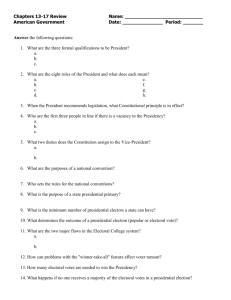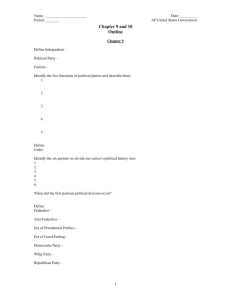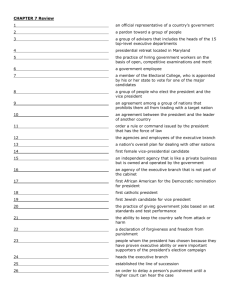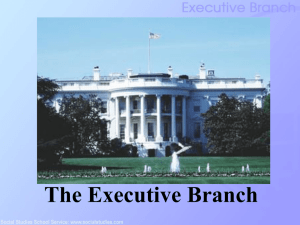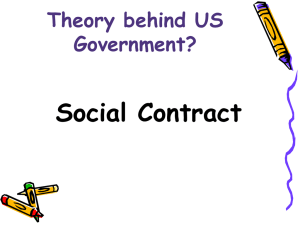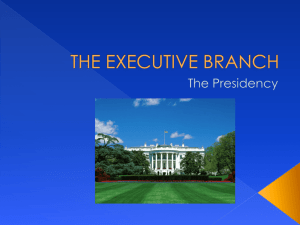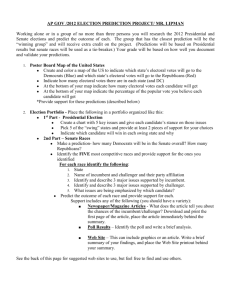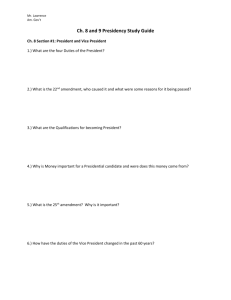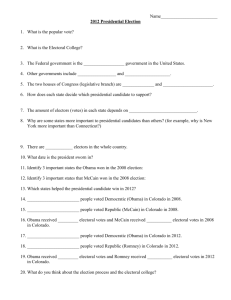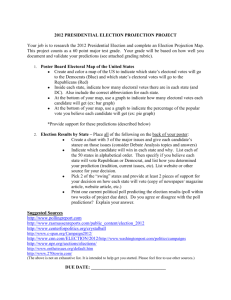The Executive Branch
advertisement
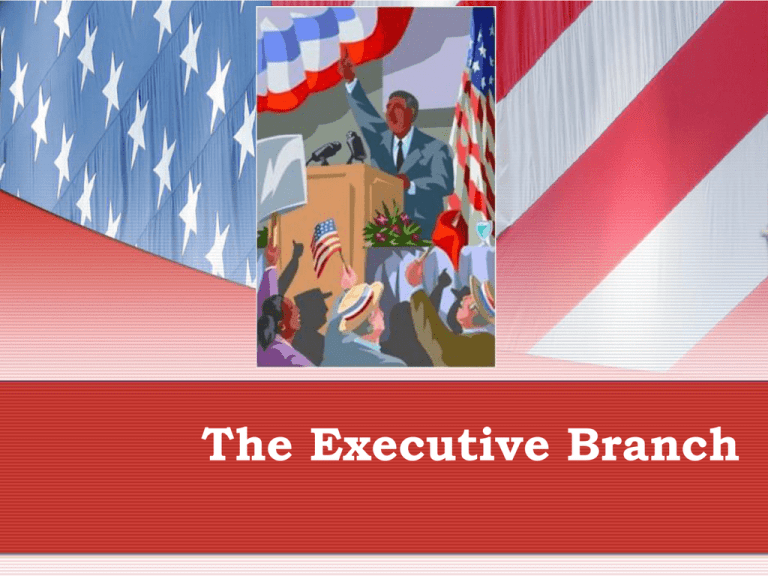
The Executive Branch The Executive Branch The Executive Branch Activating Strategy: “If I were President” Follow the directions on the handout that Mr. Fisher has given you!! Get started now!! The Executive Branch Essential Question: How would you explain the structure and the roles of the executive branch? The Executive Branch Lesson Vocabulary 1) Impeach-to accuse a public official of misconduct in office 2) Electoral Votes- votes assigned to each state based on the number of congressional seats. 3) Inauguration-a ceremony marking the beginning of a term of office. The Executive Branch Vocabulary continued 4) Cabinet-a group of advisers to the president 5) Primary Election-an election where a political party picks their candidate for the main or general election. 6) General Election-the main election for choosing government leaders. The Executive Branch The Executive Branch Presidential Elections • • • 9 Held every four years First Tuesday in November Inauguration dates The Electoral College • Reasons for the creation of the Electoral College Choosing electors Ballots cast in December, made official in January • • 10 The Electoral College meets in 1876 Electoral Votes • Calculating electoral votes • Of 538 electoral votes: 435 = House of Representatives 100 = The Senate • Redefined by California has the most electoral votes; states like 11 Wyoming and Vermont have the least the 23rd amendment Electoral College Reform • “Winner-take-all” system • Problems • • to win the popular vote but lose the electoral vote Bush v. Gore • Proposed reforms o o 12 o Direct Popular Election Percentage/ Proportional District Presidential Primaries & Caucuses Future president Gerald Ford runs for Congress in the 1948 Michigan primary • Primary: an election held to pick a party’s candidates for a general election • Caucus: a group of people (usually those from a single political party) who meet to choose a candidate to support in a general election 13 National Conventions • Delegates formally select candidates for president and vicepresident • • Platform: a party’s formal statement about its positions, goals, and principles Unity 14 Ronald Reagan gives his acceptance speech at the 1984 Republican national convention Presidential Requirements and Roles To be eligible to become president, you must: John F. Kennedy became the youngest president elected to office • Be at least 35 years old • Have been born in the U.S • Have resided in the U.S. for at least 14 years 15 Presidential Term of Office • The two-term precedent • The 22nd Amendment 16 George Washington set the two-term precedent President Franklin D. Roosevelt was elected to four terms The 25th Amendment • Deals with instances in which the president dies or becomes disabled • Established an order of succession • Set rules for choosing a new vicepresident Lyndon Johnson takes the presidential oath of office after the assassination of JFK 17 The Vice-President • The vice-president has two main duties • to serve as president of the Senate (which usually means casting a tie-breaking vote) • to succeed to the presidency if the president dies John Tyler 18 Andrew Johnson • The first vice-president to become president when the president died was John Tyler, who became president after William Henry Harrison died of illness after only a month in office. Executive Powers • Chief Executive • Executive orders • Appointments • Removals President Richard Nixon signs an Executive Order 19 Legislative Powers • Recommend legislation to Congress • Approve measures passed by Congress • Veto power • Call special sessions of Congress President George H.W. Bush signs into law the 1990 20 Americans with Disabilities Act Judicial Powers • Appointment of federal judges • Reprieves • Pardons • Commutations • Amnesty 21 Supreme Court Justice Warren Burger and President Nixon at press conference announcing Burger as new Chief Justice Military Powers President Lyndon Johnson pins a medal on soldier in Vietnam 22 • Commander in chief of the U.S. military • Power to deploy troops • The War Powers Resolution Diplomatic Powers • Treaties • Recognition • Setting foreign policy 23 President Kennedy signs the 1963 Nuclear Test Ban Treaty The Cabinet • Advises the president • Not mentioned in the Constitution • George Washington created the first Cabinet 24 The Modern Cabinet 25 The Growth of Presidential Power • Only government official elected by the country as a whole • Executive branch: decisions made by one person • Congressional legislation • Executive Orders 26 DO NOW 2-4-16 Please take out your Essential Question assignment that is due today. Make sure that your name is on the top. I will give you 5 minutes to look over your materials before we take the quiz.
